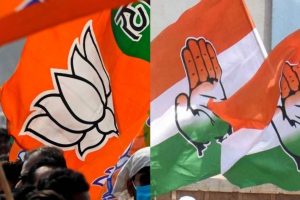At the eleventh hour, American lawmakers have managed to dodge a government shutdown with the passage of a temporary spending bill. While the immediate crisis has been averted, the fallout from this last-minute deal in Congress holds two key areas of concern the fate of President Joe Biden’s $24 billion request for new support to Ukraine and the potential turmoil within the Republican House caucus. First, the impact of this deal on the war in Ukraine cannot be overstated. The omission of additional aid for Ukraine in the bill leaves Kyiv in a precarious position. President Biden’s request for $24 billion was a clear signal of the United States’ commitment to Ukraine’s fight against Russian aggression. However, the absence of this funding underscores the challenges of navigating foreign policy within the turbulent waters of Capitol Hill.
The $133 billion in weaponry and humanitarian aid provided to Ukraine since Russia’s invasion in February 2022 has undoubtedly been a lifeline for the country. Still, the situation on the ground remains dire and the need for further support is undeniable. Ukraine’s strug- gle for sovereignty and its battle against Russian forces have not abated, and the United States has committed its support. Congressional leaders have pledged to take another look at the issue of support in the coming weeks, but the delay in securing additional funding raises concerns about the message it sends to Ukraine and Russia. The uncertainty surrounding this funding could have strategic consequences, potentially embol- dening Moscow and undermining the morale of Ukrainian forces.
On the political front, the fissures within the Republican House caucus have come into sharper focus. The hard-line stance of lawmakers like Congressman Matt Gaetz, who threatened to bring a motion to remove Mr Kevin McCarthy as House Speaker, has added another layer of complexity to an already divided party. The decision by Mr McCarthy to rely on Democratic votes to pass the short-term bill was a risky move and the challenge from within his own ranks cannot be underestimated. The dynamics within the Republican Party are emblematic of the broader polarisation in US politics.
The struggle between moderate and hardline factions within the GOP reflects the deep ideolog- ical divide that continue to hinder effective governance. While Mr McCarthy managed to secure passage of the bill this time, the threat of an internal rebellion looms large and the days ahead will reveal whether Mr Gaetz and his allies are serious about their intentions or merely bluffing, especially as Republican politics in Congress will be determined significantly by its leading Presidential contender. While the fate of Ukraine hangs in the balance, the ongoing political turmoil within the GOP underscores the challenges of governing in an era of intense partisanship. The coming weeks will be pivotal in determining how these issues play out, with implications for both international relations and US domestic politics.











